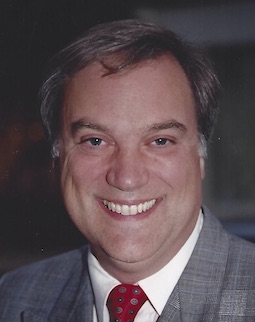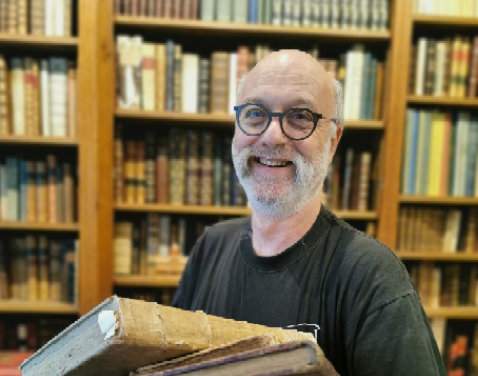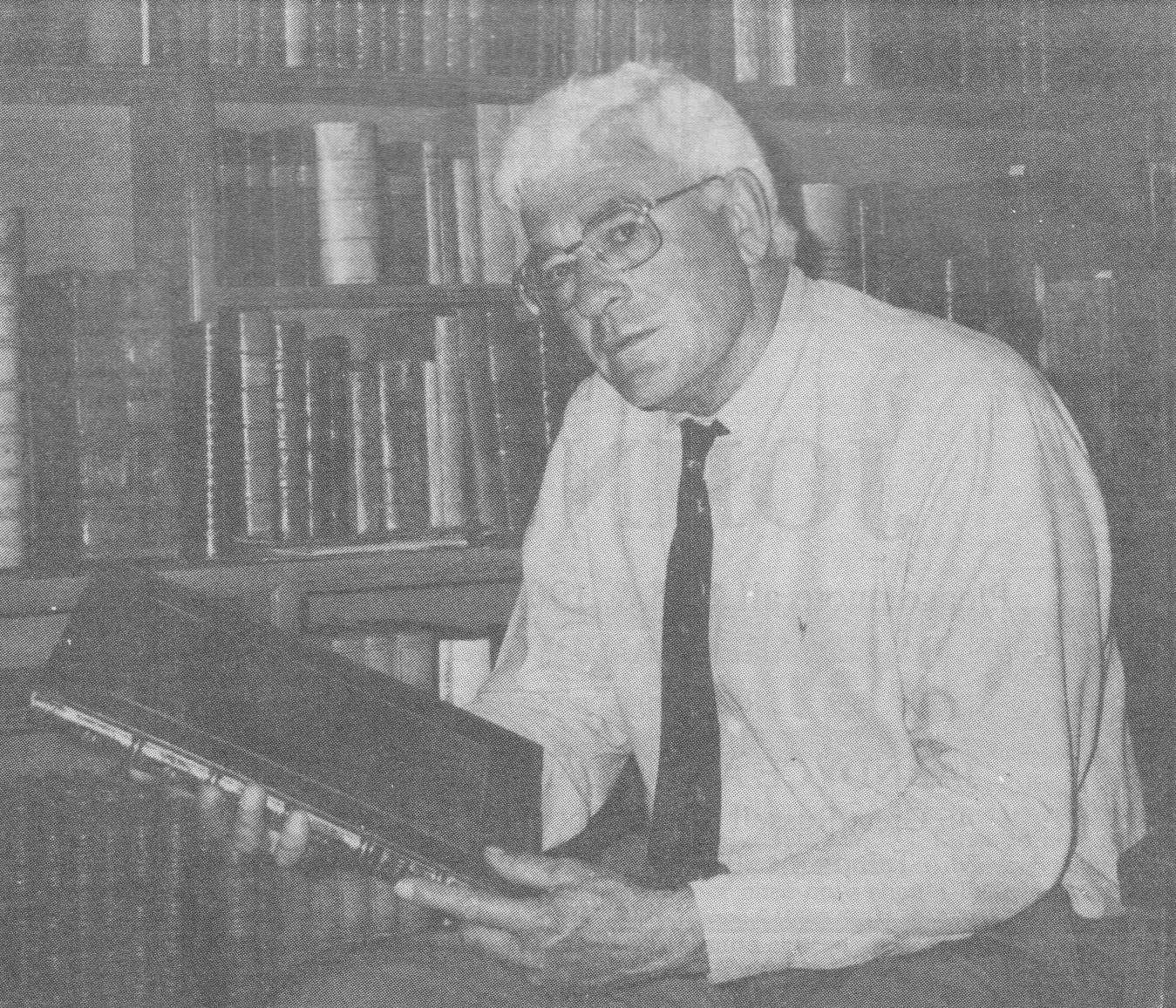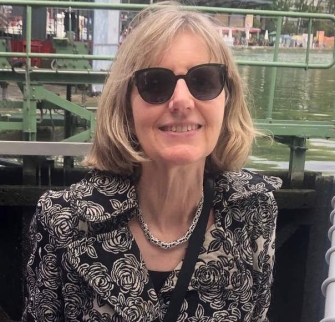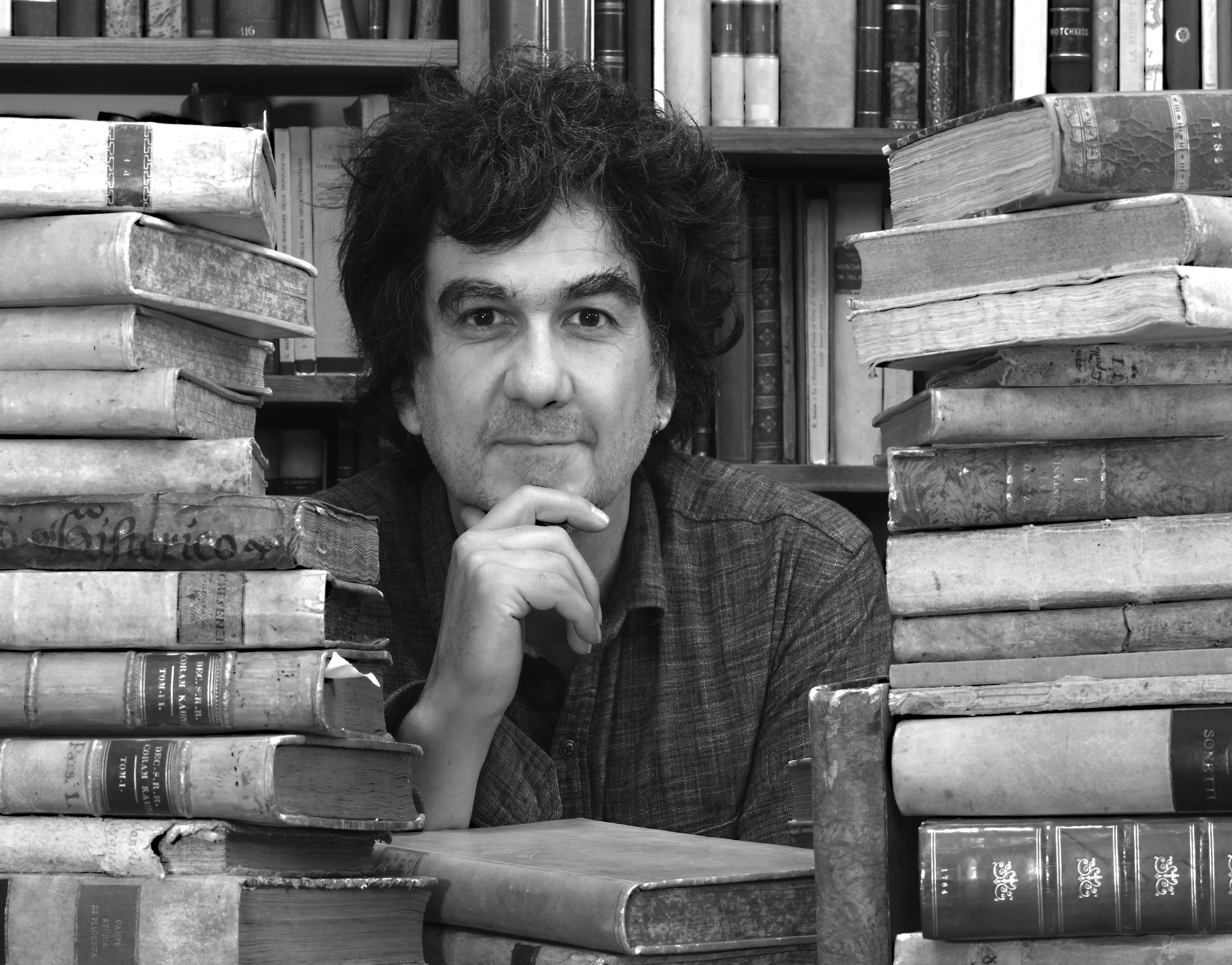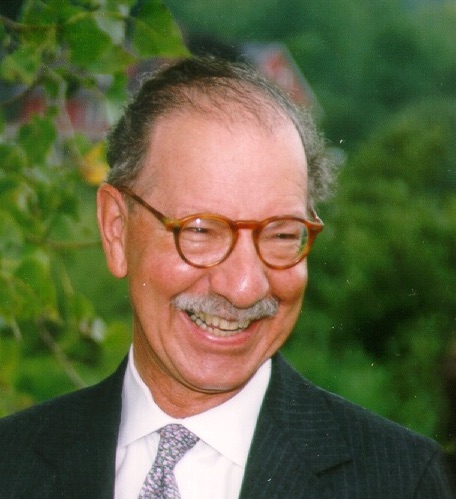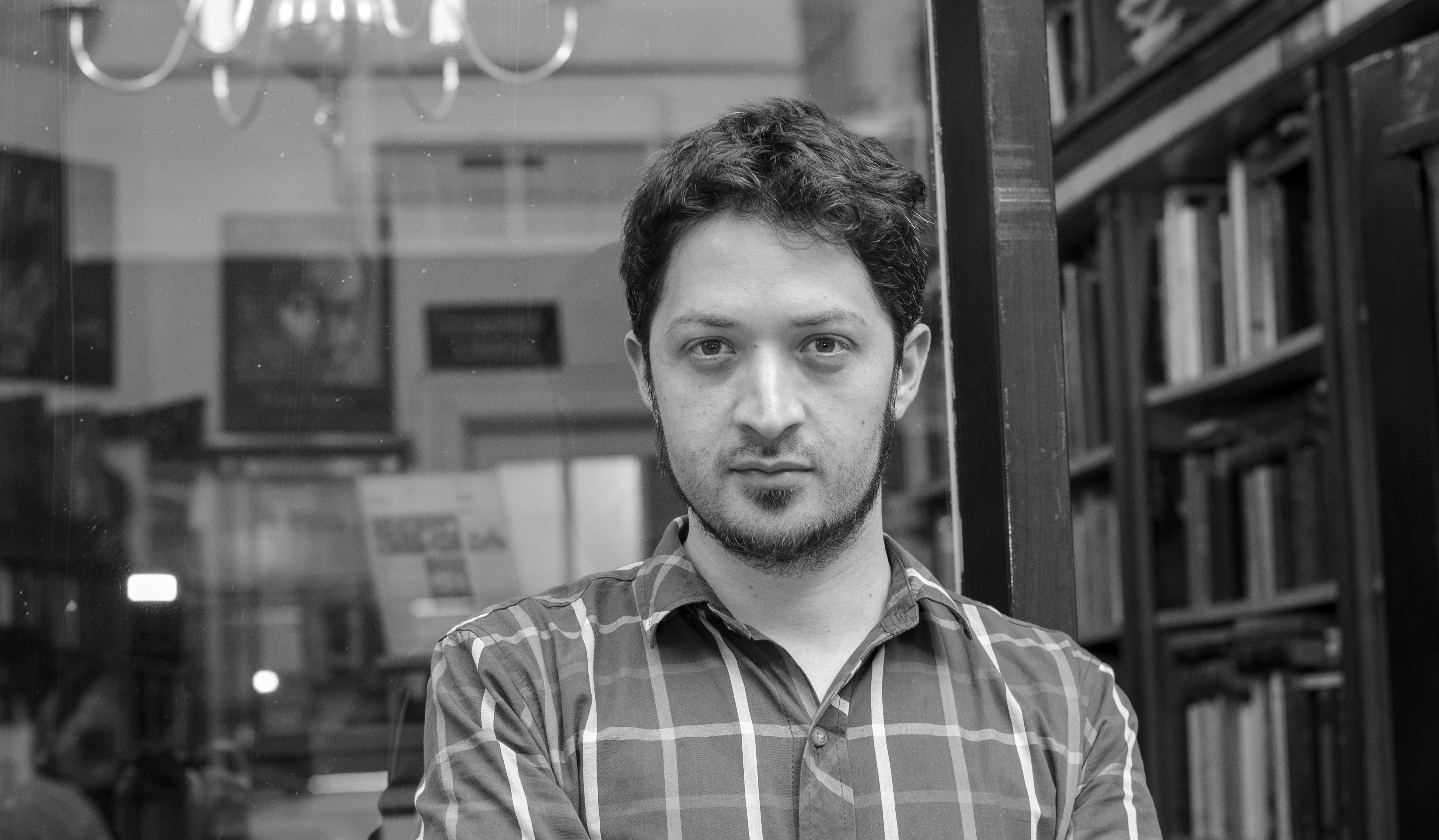The Interviews
An essential archive of book-trade history,
with biographical information available nowhere else
- Ian Jackson
In 1991 Barry Shaw, editor of Bookdealer, invited me to write a series of profiles of antiquarian booksellers for publication in his magazine. At the time, I had spent twelve years in the trade, and had been fortunate to meet some of its most influential and colourful personalities in a field renowned for eccentricity. When the project was first suggested, it appealed to me as an opportunity to indulge my curiosity about the ‘human’ side of the trade – how people got into it, and, once there, how they made it work for them. As the profiles reveal, there are a hundred ways to sell a book and perhaps as many different routes into the trade. The project continued for a decade until Bookdealer ceased publication in 2010, by which time I had contributed 117 profiles of antiquarian booksellers to its pages. In 2011, Nicolas Barker invited me to begin a new series for The Book Collector, and the project continues to this day under the editorship of James Fergusson. What I didn’t realise at the outset was that the antiquarian book trade was about to be transformed by technological developments. When I set out to interview the subject of my first profile in March 1991, I had no idea that Tim Berners-Lee and his colleagues were experimenting with a prototype of the World Wide Web. For this reason the profiles are arranged in chronological order so as to demonstrate the momentous pace of change, with which their subjects had to contend. This arrangement has the unintentional effect of highlighting changes in my journalistic style. After the first dozen interviews, I decided to adopt a monologue style in which the profiles draw entirely on the subject’s own words. Sally Edgecombe’s is the first such example and, by no coincidence, one of my favourite profiles. I began to relax and, more importantly, I think my subjects did too.
Peter Eaton
Bookselling has altered. There are a lot of aristocrats in it now. When I started, there were only about three who had been to Oxford. It was always considered a trade and not a profession.
Simon Gough
We are here to seduce people, and that’s what I try to do with my catalogues.
Raymond Kilgarriff
The printing and design of booksellers’ catalogues is very important. We are, after all, supposed to have a bit of an eye for a book.
Sam Fogg
Since about 1500, books have gone downhill until around 1950 when they perked up again.
David Brass
The secret to success in this business is a great memory for books you have seen before, and flair to recognise books you haven’t seen before.
Anthony Rota
Ideally, a new person should start in a busy general bookshop. Even dusting the stock teaches you a lot about relative scarcity – how often do you dust the same book? That tells you something about supply and demand.
Barbara Grigor-Taylor
There’s a lot of prejudice against women in the trade, but I’ve just been too busy to notice
Simon Finch
Luck and periodic hard work, usually for no more than a few months a year. That’s when I do it all and then wonder why I did it.
John Wilson
It is not improbable that a general interest in letters may increase as the genre approaches extinction, which it very nearly has according to a leader in The Times on 1 August 1991, ‘Incontrovertibly, the art of letter-writing is dying.’
Bill Fletcher
I never worry about stock not shifting. It usually means the right person hasn’t come along and one day he’ll walk in and say, ‘I’ve been looking for that for years!’ And I’ll say, ‘We’ve had it for years! Where have you been?’
Christopher Edwards
You need to develop a passion for and knowledge of a particular field. All the best dealers are like jackdaws, hiding away bits of information until they become useful.
Eric Korn
I’m reluctant to see computers in a prominent position in a bookshop. It’s rather like turkeys cultivating cranberries.
Sally Edgecombe
If I could run the shop on air, I would. Unfortunately, one has to know so much about money these days, and I’m just not interested in it - except in so far as it allows me to buy more books.
Benjamin Spademan
There are far more book collectors in France, Germany and Italy in particular. Books are still a minority interest in this country.
Michael Hollander
I still have the standard bookseller’s fantasy of that telephone call, ‘Mr Hollander, my husband just died. He’s been collecting horrible old illuminated manuscripts. Can you come and take them away?’
Edith Finer
I’ve always loved buying in bulk, and driving round London with the car so full I could only see out of the side mirrors.
Nial and Margaret Devitt
We’ve been very happy in bookselling - whatever Nial may have told you about wanting to run a bordello in Istanbul.
Charles Traylen
Buy the best copy available. You should never have to apologise for the condition of a book.
Ralph and Gillian Stone
One thing about running a general secondhand bookshop is that you’re going to make 90% of your sales from 10% of your stock and you’re never quite sure which 10% it’s going to be.
John and Juliet Townsend
You can learn so much about a person simply by going through their books. I always think buying a library is rather like buying someone’s life.
Robin de Beaumont
I don’t run things very economically – I still write a six-inch blurb for a £20 book, which is probably an absolute nonsense.
Peter Miller
One of the nice things about secondhand bookselling is that you can allow your enthusiasms to flourish, and my own tastes have gradually become more and more reflected in the stock.
John Walwyn-Jones
I’ve always found it best to ignore the old book trade truism – never buy a book with one customer in mind. I spend my entire life doing just that.
Julia Elton
It’s important for me to be engaged in a field where I can make a contribution. My interest in the history of engineering has become something of a crusade.
Sarah Anderson
Customers are pleasantly surprised to find old and new books together - presumably they tend to think of them as two separate categories. As far as I’m concerned, books are books - they’re good or they’re bad and that’s all that matters.
Daniel Lloyd
A shortage of customers is certainly not the problem - we simply cannot find the books. They’re so thinly spread out these days.
Keith Fletcher
It’s an extraordinary fact that more and more people are trying to make a living out of fewer and fewer books.
Clive Farahar
I joined Francis Edwards straight from school in 1969, and spent my first month dusting the shelves. This was considered a good way of becoming acquainted with the stock.
Serge Plantureux
Ask me how to improve the book trade at a stroke and I’ll tell you to close down all the auction houses.
Roy Davids
Being hyperactive and self-confident, while vital ingredients, do make it almost certain that you will fail with some people and run into others.
Camille Wolff
I originally trained as a doctor. Compared to medicine, the worst thing you can do in bookselling is drop a book or lose money.
Rudi Thoemmes and Rachel Lee
By the mid-1980s, it was almost too easy to make a lot of money.
Robin Fryde
It’s scientifically untenable but I like to think there’s a genetic bent towards the love of the rare and the old.
John Francis Phillimore
Ideally I would have read every book in the shop and only have books that I enjoy.
John Robertshaw
Cataloguing is a lot more than just listing titles, dates and prices. You can make a book much more attractive by describing it a certain way.
Michael Hicks Beach
What you like is not important. It’s what your clients like that matters.
Robert Frew
There’s a lot of difference between being able to catalogue nicely and knowing what is a saleable book.
Jim Thorp
As one starts to get older, one’s customers should look younger. But they don’t and I suppose one should be worried about the advancing age of many book collectors.
Jennifer Jaeger
Every town in Australia with a population over 10,000 will have at least one new bookshop and/or a remainder shop. You may also find a secondhand bookshop, either selling Mills & Boon for the farmers’ wives - if you saw the farmers you would know why - or selling something more serious.
Eric Moore
Bookselling is the most humane, sociable, ill-organised, yet absorbing form of commerce to be found anywhere.
Stuart Bennett
My collecting interests do not clash with those of my customers. But when they do, it is sometimes hard for me to predict whether, in the ensuing struggle, the bookseller or the collector will triumph.
Laurence Worms
The most enjoyable aspect of bookselling is the opportunity to learn something new every day. Booksellers often live to a great age and this is probably due to the mental stimulation.
George Locke
Someone described warfare as long periods of boredom punctuated by sheer terror, which is very much my experience of auctions.
Nadeem El Issa
Lebanon was a huge source of old books before the troubles began in 1975. When I was a student it was still a very open country and we were able to buy – under the counter – rather risqué material from an avant garde bookshop on Bliss Street. There were houses full of books in Beirut and I sometimes wonder where they are now.
Nigel Williams
The stimulation of dealing in modern firsts comes not so much from the content of the books as from the aesthetic pleasure of finding rarities - and finding them in attractive condition.
Greg Coombes
Booksellers are judged, by their peers at least, solely on the strength of their stock. You can criticise a bookseller’s wife, his wardrobe or his personal hygiene. But if you criticise his stock, he will never speak to you again.
Rob Rulon-Miller
Some colleagues seem to believe that you are a better bookseller if you sell expensive books, which I find a loathsome attitude.
Don Lake
Booksellers tend to be very generous with their knowledge and I never miss a chance to talk and read about the trade. In fact I never make manoeuvres of any variety without speaking to a number of people in the trade whom I respect.
Peter Burridge
When I buy a book I can probably put four or five customers’ names to it immediately. There is a great satisfaction in finding the right home for a book.
Charles Russell
The secret to any form of bookselling is to have a clear idea, even if you cannot articulate it, as to what an object is worth.
Albi Rosenthal
Collecting requires limitation, otherwise the activity becomes a mere amassing of material without direction.
Joseph Allen
When I first started, I was told by a very eminent figure in the trade that it was a waste of time to read books – my job was to sell them. And if I sold enough, I would be able to employ people who were well-read. This was typical of the old school of bookselling.
Arthur Freeman
A bookseller’s career is the record of what he has handled – whether he buys or sells it, discovers or values it, or simply offers advice.
Adrian Harrington
It is quite common to find no old or rare books in the home of a sophisticated antiques collector. When I comment on this, the explanation is always the same, ‘Don’t you need special conditions to look after books?’ I explain that as long as you are comfortable, the books are comfortable.
Charlie Unsworth
I do like to feel that our business not only pays the wages of our staff, but also increases access to knowledge.
Brian Lake
The business of bookselling is about breadth of stock. Booksellers shouldn’t contribute to the narrowing of literacy by only going after the ‘big’ books.
Jonathan Gestetner
Bookselling has to be a passion - it does not always make sense as a purely commercial activity.
Gabriel Beaumont
I like my books to be meaty; I dislike anything that smells of the dilettante.
Kenneth Smith
I love to take an empty space and turn it into a thriving bookshop. Ideally I would happily spend my time setting up bookshops for other people.
Paul Goldman
We have the opportunity to give pleasure and this is surely one of the most worthwhile aims in life.
Robin Greer
When I look at financially successful businesses, there always seems to be a certain ‘regularity’ of stock. But I like to buy something I have never seen before; the filter of interesting material inevitably brings one into contact with interesting collectors.
Graham Weiner
The book trade is a nice hideout for misfits, but you can’t be completely mad to run a business.
Anthony Neville
It is up to us to redistribute books in the best possible way – best for the books as well as for ourselves.
Eric Morten
It’s fabulous to handle great books, but you have to know what to do with the ordinary ones as well. I look at books from every angle and try to see all their different possibilities.
Alan Shelley
We need to spread the message that books can be appreciated on many levels for many different reasons. In a sense we are prisoners of our own mystique.
Christopher Sokol
The nice thing about bookselling is that it is Christmas every day - there is always something exciting in the post.
Julian Nangle
Don’t forget the cheap books or the people who are able to buy them. So many dealers spend their time running after books that only mega-rich people can buy.
Hamish Riley-Smith
A good guide to rarity is to consult an elderly dealer on a book in his specialist field. If he hasn’t seen a copy for thirty-five years, the book is rare.
George Ramsden
Some booksellers are persuasive recommenders – it’s a huge gift. I find it very difficult to sell books verbally. Things tend to go better if I walk away from the customer.
Sam Jonkers
In the field of children's books, nostalgia is the key factor in collecting. People tend to buy the books that they read as children.
Robin Waterfield
We had far too much staff – some rather eccentric – and a customer once inquired, ‘Is this an occupational therapy centre or a bookshop?’
Janette Ray
A good catalogue is rather like a coat hanger, on which you can hang interesting material.
Wilfrid de Freitas
When I decided to go into bookselling full-time, one of the doyens of the Montreal antiquarian book trade, Grant Woolmer said, 'You'd better get in a lot of groceries ahead of time'. His point was that Montreal wasn't a great place to sell books.
Helen Kahn
I really feel blessed because this is a business that you can do any way you want.
Kathy and Dan Leab
What worries us most about the book trade at the moment is that there is not much apprenticeship going on. How is the next generation going to learn the trade if everybody is too busy to teach?
Leo and Philippa Bernard
You make your shop what you are. Every bookshop takes on the character of the person running it.
Norman Storey
Erudite people don’t necessarily make the most successful booksellers. You must have a commercial brain.
Margaret Squires
I went into bookselling thinking that it would do until I got a ‘proper’ job when the children grew up. This shows a terrible contempt for bookselling, but it is more a reflection of the portfolio life that many women tend to have, with many part-time occupations.
Nigel Burwood
It would probably have been better for the book trade if the Internet had never been invented: it has spread the game too wide.
Bernard Shapero
My ambition was to climb the ladder, selling increasingly expensive books. If you love books, you want to handle the best.
Conor Kenny
The book trade still operates best the way it always did – by catalogue and by booksellers and book lovers visiting each other.
Angus O'Neill
I like dealing in books that present a bit of a challenge to the imagination, obscure books, or books that require careful researching to yield their value.
John Bonham
Since the coming of the internet, it’s much less rewarding to forage for books in faraway places.
Michael Taylor
To succeed in bookselling or, indeed, in anything, you must work within your own limits as a person. Don’t try to become what you are not. I’m not an aggressive salesman, but I keep my ear to the ground.
Mitsuo Nitta
Training for the rare book business in Japan largely consists of watching the boss.
John Saumarez Smith
I particularly like buying secondhand books and finding the right home for them. People tend to forget that booksellers are essentially book buyers.
John Loska
We all do our bookselling in a slightly different way. It’s this ability to perceive books differently that enables us to buy and sell from each other.
Larry Ilott
I probably learn something from every book I buy – even if it’s only never to pay that much again.
Chris Kohler
To be a collection bookseller, you need an idea, the patience to pursue it, and not least the confidence to throw money at it.
Paul Orssich
One hears people say proudly, ‘there’s no copy on the internet’, implying that it’s very rare, but failing to take into account the number of dealers who don’t put their stock online.
Richard Hatchwell
As a bookseller, I would like to be remembered for my catalogues. How long do personal memories last – perhaps one generation, but not much more?
Peter Budek
Book collectors like the physicality of the object; they want to hunt in the corners of a bookshop, and not in the margins of a screen.
Alfredo Breitfeld
I cannot imagine a time when one of my clients will start to tremble and perspire holding in his hands a first electronic version of Don Quijote de la Mancha.
Edward Bayntun-Coward
There is nothing virtual about our bookshop, and that is so much part of the pleasure.
Sabrina Izzard
Nobody grows up saying that they want to be an antiquarian bookseller. It is not one of the established career options.
Ian Marr
Metaphorically speaking you have to deconstruct a book and put it back together again to see what makes it tick, and that is how a book gently reveals itself to you.
Robert Humm
Bookselling has the advantage that you do not need to take the plunge all at once – the stock does not go off or go out of fashion.
Chris Dennistoun
The rare book business must be one of the worst trades to be in at the moment. The reason why many booksellers are still able to make a success of it is that they have very low overheads and spend nothing on themselves.
Elizabeth Strong
When I got into my teens I began to buy books faster than I could read them – a telltale sign of a bookseller.
Tim Bryars
Shops are vital to the survival of the book trade. They should not be seen as a throw-back to another age or a dinosaur business model.
Alan Mitchell
I started my business with one pound ten shillings. Today you would need £100,000 before even thinking of dealing in good antiquarian books.
John Windle
Young people will be drawn into collecting by looking at books on the web, and developing a hunger for the real thing.
Paul Mills
My customers have immense knowledge about their chosen subjects, and it is very enjoyable to be continually learning from them.
Pom Harrington
New collectors are not attracted by the image of the musty old bookshop, with a clock ticking in the corner.
Timothy D'arch Smith
I consider myself fortunate not to depend on bookselling for a living during the age of the internet.
Sophie Schneideman
Everything is so deeply felt in private press books; there’s something special about owning an object created with such spirit in a world where there’s so much trivia.
Charles Cox
I can think of more sensible occupations but I can’t think of any more pleasurable.
Roger Gaskell
When a customer orders a book, they are in effect saying, ‘This is interesting’, validating your decision to buy it, research it and pass on the knowledge and the book.
Michael Graves-Johnston
In internet bookselling, you make a sale but you don’t make a customer.
John Martin
This business can be so dominated by a single collector whose death, divorce or financial difficulties, for example, can cause an entire market to crumble.
Philip Brown
You should buy books because you love them, not for investment. If you make a profit when you come to sell them, that’s the cream on top.
William Poole
You shouldn’t assume that a book has become worthless just because it has been digitised. We don’t know how long these technologies will last or how stable they are compared to what we know about parchment and paper.
William Ward
It seems to happen to most dealers that, in their first year, God smiles on them. In my first year I bought some fantastically nice books.
Jeff Towns
The only thing you learn about a customer online is their credit card number, which, although useful, is the least interesting thing about them. I prefer to sell a book face-to-face.
Bennett & Kerr
When Andrew and I are called out to deal with the books of the deceased, it’s rather like being an undertaker. You need to be sympathetic, and to remember that the books have been collected lovingly over the years, and to give reassurance that they will go to other people who will also treasure them.
Bogislav Winner
The supply of books is shrinking, but it’s not going to run out; different books are going to become interesting.
David Temperley
When I see a book, a picture forms in my mind of the customer to whom I will offer it, institutional, trade or private. I pick up the phone and my success rate is high; I don’t make many foolish calls.
Carl Williams
I was rather stuck with ‘counterculture’ as a label when I was at Maggs. I didn’t choose it; it just emerged. What I’m really trying to do is understand the connection between cultural history and contemporary art.
Jonathan Fishburn
Collections can be very attractive to institutional customers, especially when the material has ‘PhD’ potential. There’s an element of creating a bit of intellectual history by the way in which you formulate the material – a sense of putting a subject on the map.
Ian Smith
University book-collecting prizes play a major role in encouraging the younger generation. They also demonstrate that you can build a meaningful collection without a large wallet, either for research purposes or simply for the pleasure of it.
Roger Treglown
If you’re thinking of collecting books, befriend a bookseller and he or she will guide you on your way.
Richard Kossow
The best booksellers whom I have known are able to take a book associated with a particular subject, and reveal the light that it can shed on a field where it hasn't been appreciated before.
Chris Loker
The rare book world is a magnificent place, filled with rugged individualists who walk to the beat of their own drum. They are entrepreneurs in ways that I will always admire.
Alican Akın
Istanbul is one of the oldest cities in the world, and has been the capital of three empires. It has hosted so many different languages, cultures and religions and is the perfect place to be a bookseller.
Zhenya Dzhavgova
I’m so grateful for the priceless help and advice that I received from the older generation, and now it’s my turn to help younger dealers. The book trade isn’t dying, it’s evolving, and they are the ones who will take it to the next place.
Edwin Bloemsaat
I don’t put my catalogues online, or send out lists before exhibiting at fairs. I like to hold back plenty of interesting items to display on my stand, as I believe that people who make the effort to visit deserve first sight of them.
Rose Counsell
There is an increasing number of young people in Japan who are entering the trade because they like the independent lifestyle. Such people are no longer attracted by the traditional model of working long hours in a large corporation for the social status associated with it. Perhaps the 'sarariman' and woman are discovering that bookselling is another way to support oneself and offers more freedom.
Michel Saporta
Collectors who become booksellers can be a very positive development for the trade. If you’re passionate about something, there’s always a chance that you will be good at it.
Ann Baer
Raymond Mortimer summed up the critical reaction to the Ganymed facsimiles, saying that they would be a real menace to the art world but for the embossed head of Ganymede after Benvenuto Cellini, which distinguished them from the original works of art.
Susanne Schulz-Falster
I like my books to have something more to them than the text – some aspect about which I can tell a good story. It might be the binding, the provenance, the illustrations or movable parts – it’s the best argument in defence of the physical object in the age of digitisation.
Pak Taehôn
The fundamental problem in Korea is the lack of understanding of book culture. As a result it is difficult to maintain a specialised bookstore. I believe that the solution lies within the realm of education and awareness.
Jaime Armero
My Spanish father met my French mother in England, where I was born in 1965. While we were in London, my father began collecting travel books on Spain as a hobby. Those who knew him before he moved abroad say that living in the UK changed him from a teenage rebel in the aftermath of the Civil War to a tranquil Londoner working for the Spanish Embassy.
Kay Craddock
The inaugural Australian Antiquarian Booksellers’ Fair was held at Monash University in 1972. We were one of eight Australian exhibitors, joined by Jocelyn Baines of Bernard Quaritch from London, and Reg Longden from New Zealand. The reaction of collectors to the fair was like farmers at the breaking of a drought. More than one collector fell into an ecstatic trance.
Peter Beal
In my field of work, persistence is very important. I often question reports about manuscripts having been ‘destroyed’ or ‘lost’, and this approach has paid off several times.
Malcolm Lamb
When antiquarian booksellers refer to morocco, the term is correct in the sense that the leather probably came across the Sahara from Nigeria to Morocco where it was exported to Europe. English sheep are useless for bookbinding purposes, as the type of skin that produces thick wool lacks the supple strength of fine-haired goatskin. When a book is described as bound in sheep, the skin probably came from a hair sheep imported from the Middle East.
Sally Burdon
Networking was much easier when there were more physical bookshops, and you could just pop in for a chat with colleagues. Zoom is an incredible resource, and I’m not trying to say that one or the other is better; they’re just different. The important thing is that we continue building relationships and learning from each other.
Leo Cadogan
We all have to figure out how to tell a good story. Some booksellers reach for the key punchy points, and others get there more slowly. The goal is always the same; books must be made to live.
Mario Giupponi
As a trade, we tend to assume that the general public understands our world, but it doesn’t. We need to get into their minds, and find ways of holding their interest. The fact that a book is very old may fascinate some people, but alienate others who find it too remote from their daily lives. An appreciation of the achievements of the past is definitely lacking from present-day culture with its emphasis on the future.
Charles Wood
After 57 years in the business, I still haven’t lost my love of buying and selling, and the sense of joy I derive from the physical presence of books. I know so much more than when I started that I’m able to buy more creatively, and I can still find wonderful things. I hope I croak while ordering a book, because it’s been so much fun.
Javier Moscarola
Books reflect the human condition. When I go on a house visit to look at someone’s books, it’s almost like entering their life. You learn so much about a person’s tastes and interests just from glancing at their shelves. A colleague told me that bookselling is as much about books as human relationships. We need to understand the material that we buy, but also the customer to whom we sell it.
Alicia Bardon
When people ask me what I do, there’s always a gasp of amazement that one can actually make a living selling old books. Their second question is always, ‘What’s your most expensive book?’ People are happy to spend a lot of money on property and crazy art, but they can’t understand why the first edition of The Origin of Species is expensive. It makes no difference when I try to explain that it’s a question of value rather than expenditure. Darwin’s book changed the world, which is more than can be said for their new house.
Peter Kraus
On my last day at H.P.Kraus in January 1972, we had lunch together and he asked what I was going to call my business. When I told him that I was thinking of using my own name, he replied, ‘There’s only room for one Kraus in the world of books. If you call yourself Peter Kraus, I will destroy you, but if you find another name you will have my full support’.
Christelle Gonzalo
Book shops are essential for the development of new collectors. Established collectors are not put off by having to ring a door bell and look at books in a private premises, but it’s daunting for everyone else. My shop is bright and welcoming, and I make it clear that you can find anything from a postcard of the Eiffel Tower to something more substantial.
Fuchsia Voremberg
Travel means different things to different people; it’s such a porous term, but I appreciate its vagueness. It has enough breadth to give us the scope to keep changing the kinds of books that we offer our customers.
Jonathan Hill
Jake Zeitlin was always looking for an heir apparent, and I was not the first to occupy that position. He was a charming salesman, a born deal-maker and a wonderful person. He had sold encyclopaedias during the Depression, going from door to door with an enormous bag of books. When Bob Dylan walked into the shop, Jake had no idea who he was, but they had a long, philosophical discussion about Judaism – while the staff hid behind the bookcases to catch a glimpse of the famous man. In those days, there were plenty of book collectors in Hollywood, and Jake knew all of them. He was at the centre of Los Angeles cultural and intellectual life and was able to persuade organisations like the Ahmanson Foundation to buy books for UCLA.’







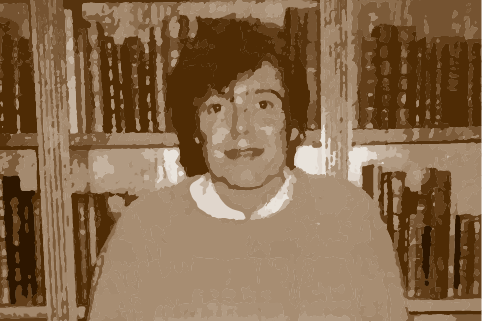












































































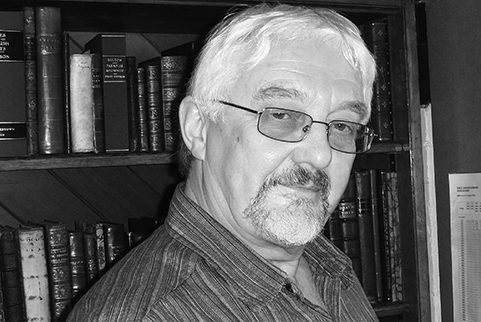
















BW.jpg)



















